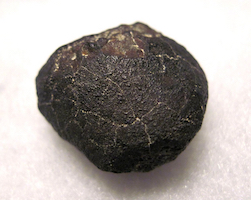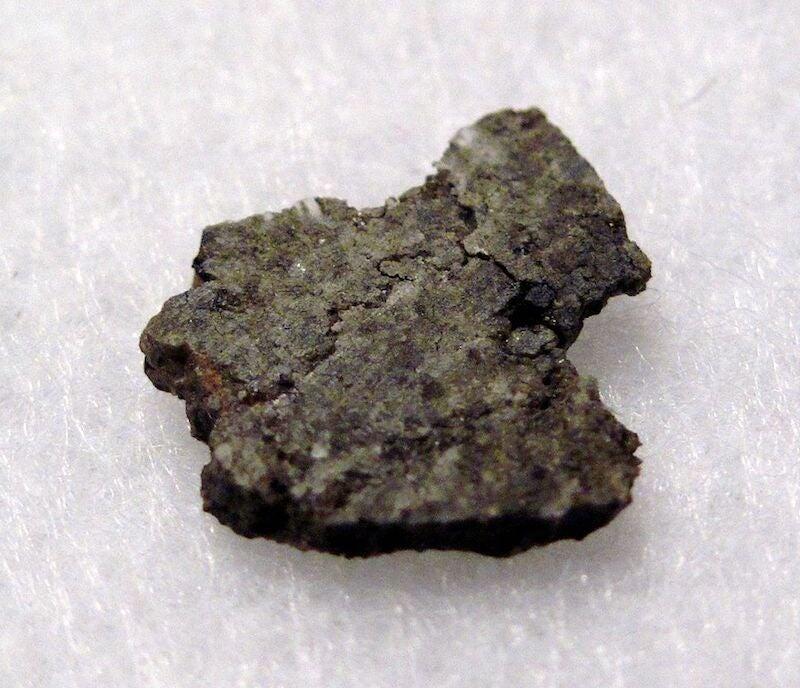
How to identify a meteorite
You’ve found a dark rock that looks different from all the others nearby. You press on it; you smell it; you look closely at it. It is definitely… a rock. But could it be a meteorite? How can you tell? Here are three points to get you started on identifying meteorites.
 1) When a meteorite passes through the Earth’s atmosphere before it hits the land, its outer surface gets ‘cooked’ due to frictional heat. This outer dark surface is called the ‘fusion crust’ which is very different from how the meteorites actually looks inside. So, the first hint that a rock could actually be a meteorite is whether it has a fusion crust.
1) When a meteorite passes through the Earth’s atmosphere before it hits the land, its outer surface gets ‘cooked’ due to frictional heat. This outer dark surface is called the ‘fusion crust’ which is very different from how the meteorites actually looks inside. So, the first hint that a rock could actually be a meteorite is whether it has a fusion crust.
2) Many meteorites are magnetic. You could carry a magnet and check if a rock is magnetic. But be careful—not all meteorites attract magnets; only the meteorites that are rich in iron (such as iron or stony-iron meteorites) will attract magnets. Some meteorites, like those from the Moon which are only made up of rocky minerals, will not be attracted to a magnet. There are also some minerals (magnetite, hematite) on Earth that are magnetic.
 3) The magnetic scratch test. If your rock is magnetic, is there a way to tell if it holds minerals from Earth, or if it’s actually a meteorite? There is. If you scratch them across the bottom of a ceramic mug, those magnetic minerals on Earth (magnetite, hematite) will leave a reddish brown or grayish-black streak or mark. Meteorites will not leave this mark. Want to know more? Visit ASU's in-depth meteorite identification page.
3) The magnetic scratch test. If your rock is magnetic, is there a way to tell if it holds minerals from Earth, or if it’s actually a meteorite? There is. If you scratch them across the bottom of a ceramic mug, those magnetic minerals on Earth (magnetite, hematite) will leave a reddish brown or grayish-black streak or mark. Meteorites will not leave this mark. Want to know more? Visit ASU's in-depth meteorite identification page.
Good luck finding a meteorite!
Additional images via Wikimedia Commons. The rock in the mystery image is, indeed, a meteorite, from Mars. Martian meteorite image by Jon Taylor.

How can you tell if a rock you found is a meteorite? What do you think of this one? Check the bottom of the page for your answer.
Be Part of
Ask An Earth and
Space Scientist
By volunteering, or simply sending us feedback on the site. Scientists, teachers, writers, illustrators, and translators are all important to the program. If you are interested in helping with the website we have a volunteers page to get the process started.
